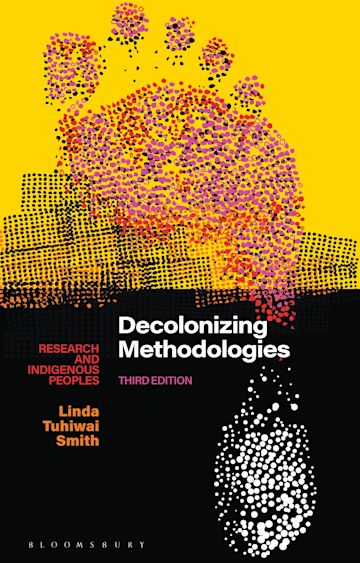
‘Research is probably one of the dirtiest words in the indigenous world’ (p.1).
Linda Tuhiwai Smith, a leading decolonization theorist, centre-stages the power relations within which research on indigenous people is conducted. In her work, Decolonising Methodologies: Research and Indigenous Peoples (published by Zed Books in 1999), Tuhiwai Smith stresses how non-indigenous researchers can engage and improve research practices with indigenous people. It also highlights whether it is appropriate for a non-indigenous researcher to research indigenous communities in the context of the Maoris of New Zealand.
The initial chapters of her book demonstrate the imperial and colonial values of Western research. She applies a critical framework to deconstruct the ‘positivist’ and ‘scientific’ knowledge. This is particularly true because Western researchers study the indigenous ‘other’ through their objective gaze which she calls a particular realization of the imperial imagination (p. 23). The core of this book is the acknowledgement of how Western research has used indigenous knowledge to dehumanise the same (p. 39). She draws from Edward Said’s Orientalism (1978) and explains how travellers’ stories about the indigenous became unquestionable truths about the ‘other’. Tuhiwai terms this condition as “research through imperial eyes” (p. 42) and “regimes of truth” (p. 58). She argues that research must be viewed through the eyes of the researched. It is essential to float out indigenous knowledge from the current state of disempowerment. This also paves the way for alternative readings to study the marginalised and communities that are on the edges. Further, she describes how indigenous knowledge has been ‘othered’ and coded into the irrelevant body of ideas, and images about culture. This situation is difficult to overcome because its ‘colonial’ manifestations have been taken for granted by people who use them in their research.
She goes on to assert that colonialism does not end merely with the end of imperial power. She negates the term postcolonialism and argues that colonialism continues to have an impact on indigenous people. She explains in detail how this powerful discourse is systematically produced and reproduced by intuitions, and scholarships. She mentions this situation of Western research as ‘encoded in imperial and colonial discourses’ (p. 25). She highlights how the state, corporations and institutions of advanced sciences fail to recognise indigenous knowledge and belief systems. The indigenous community has been reduced to a commodity similar to natural resources and used for profit.
The later part of the book deals with the Eurocentric researchers who have been working alongside the indigenous communities. Tuhiwai Smith focuses on ‘decolonization’ within the feminist and critical critiques. She explains through examples from other case studies as well as through her own research experiences. In doing this, she provides a roadmap for creating a ‘culturally safe’ research for indigenous people. ‘Maori research’ as she calls it can be a way of knowing the truths and values for research with indigenous communities. Additionally, Tuhiwai Smith provides a rich indigenous history of the people of New Zealand and asks researchers to consider the stories of these people in the representation of the ‘Other’.
While she stresses the issue of marginalisation of the researched, she says little about the role of non-indigenous researchers in this cause. The current role of ‘pakehas’ i.e., non-indigenous researchers is marginalised. It indicates that non-indigenous researcher is in a state of incapacity in taking up culturally safe research with the indigenous. This negates her argument as being ‘insider’ does not determine ‘safe’ research but our epistemological and reflexive position determines a researcher’s capability to take up meaningful research. Moreover, there is a generalisation of the experiences of indigenous people as universal. It is important to understand the shared experiences but it is equally essential to take note of the differences in experiences of colonised peoples.
To conclude, this book provides valuable insights into being critical of one’s values and beliefs while conducting research in general. Decolonisation is a long process and may take generations to experience it in its truest terms. But, it gives a direction to scholarship through an in-depth critical view of the current methodologies that are reproducing coloniality. This brings us to a situation: to unlearn Western epistemology.
***s
Mamoon Bhuyan is a Doctoral Researcher in Sociology at Brunel University London.
[…] post Decolonizing Methodologies: Research and Indigenous Peoples by Linda Tuhiwai Smith (1999): A Review … appeared first on Doing […]